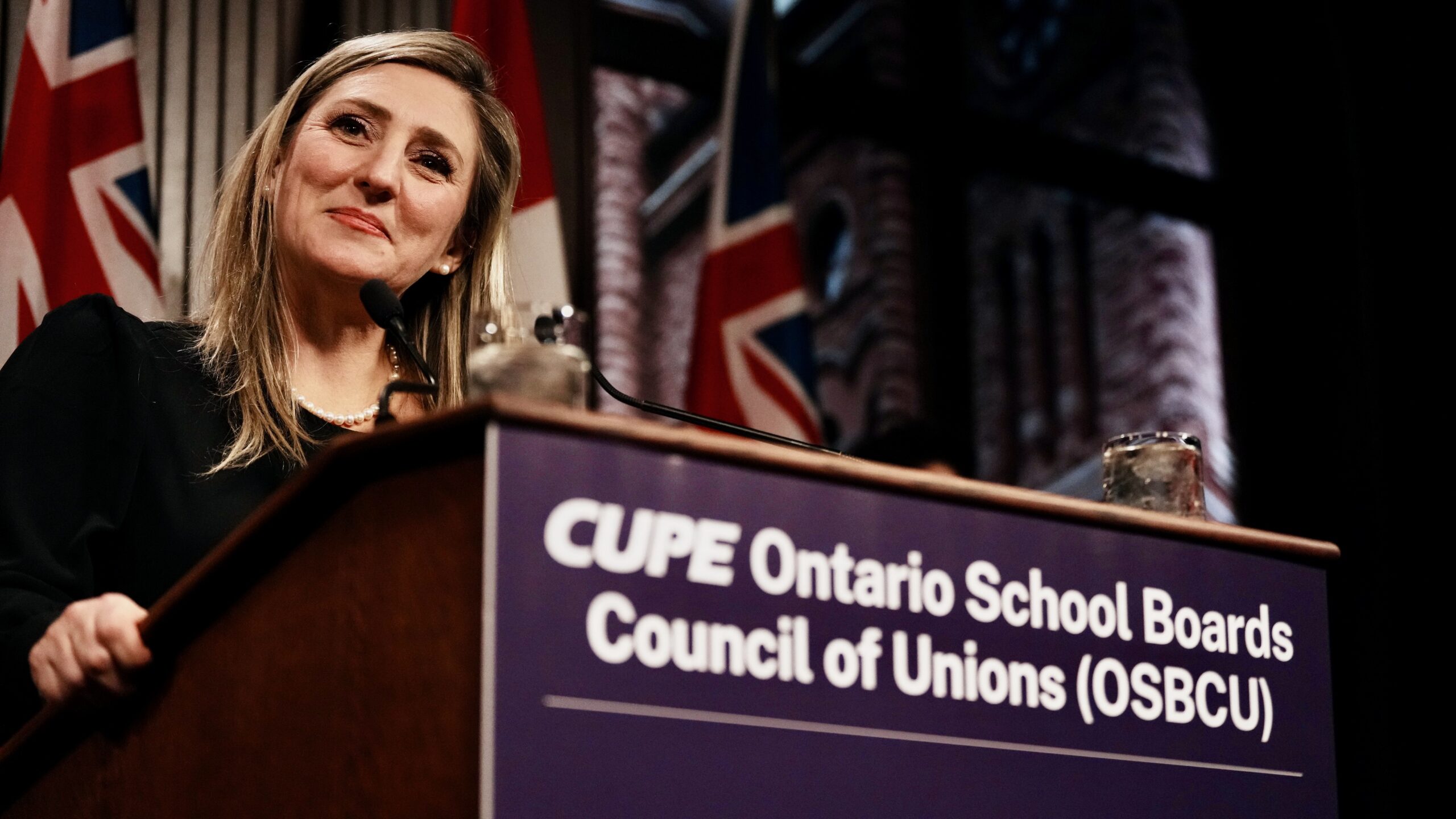The Canadian Union of Public Employees (CUPE) education workers have voted to accept the provincial government’s contract offer after 170 days of negotiations.
The voting process ended on Sunday night as CUPE leaders confirmed that 73 per cent were in favour of the tentative agreement. More than 41,000 members took part in the ratification process, a record-breaking level of engagement, according to the union.
“It’s been a long road to get here,” said Laura Walton, president of CUPE’s Ontario School Board Council of Unions (OSBCU) at a press conference on Monday morning.
“It is my greatest hope that this deal begins to alleviate the need, and shows workers that after years of being overlooked and under-appreciated, that our work is valuable,” Walton said.
Under the new four-year contract agreement education support workers will receive a $1 hourly wage increase each year which is double that of the original government offer.
Walton confirmed she was in favour of the contract, but noted she understood workers who chose to vote against the deal as the agreement doesn’t include adding services to these sectors.
“I was once told back in my early years that good negotiations meant that both parties walk away disappointed,” she said. “This is like winning the Super Bowl and now we’re going to rebuild the team and go back in again.
“There is much that is left on the table,” Walton said.
Michelle Campbell, a development support worker, said the elementary school she works at has one educational assistant (EA) for every 230 students.
“In my decades working as an EA, I’ve never seen anything as bad as what schools are like right now,” she said.
Campbell is concerned the lack of support is creating an unsafe environment for students.
“School boards are bringing unqualified and untrained moms to fill in for us when we can’t be there,” she said. “Without enough caretakers to clean the schools, it’s leading to the spread of illness.”
Campbell and other EAs have been pulled from classrooms several times to attend crisis intervention calls they aren’t trained to handle.
She said the union would be looking to do more to address the issue.
“Know that ratifying this agreement is not the end, not by a long-shot. We’re just getting started,” Campbell said.
Walton noted that the turning point in the negotiations came when the government implemented Bill 28 as they shifted to public bargaining. This compelled several education workers to reveal their living conditions, including having to work two to three jobs in an effort to make ends meet.
“Is it hard to admit for some of our workers who said, “I have to access a food bank,’ absolutely,” Walton said.
“Open bargaining allowed for those very real stories to be told. And now people are starting to question, ‘Why is the other side hiding so many things?” she said.
Walton said CUPE will stand in solidarity with other unions who are currently at the negotiating table with the provincial government and is hopeful that there will be more transparency with open bargaining.
“This sets the bar moving forward. We are setting the tone. Workers are people in the community, and we have power in the community to push forward,” she said.

